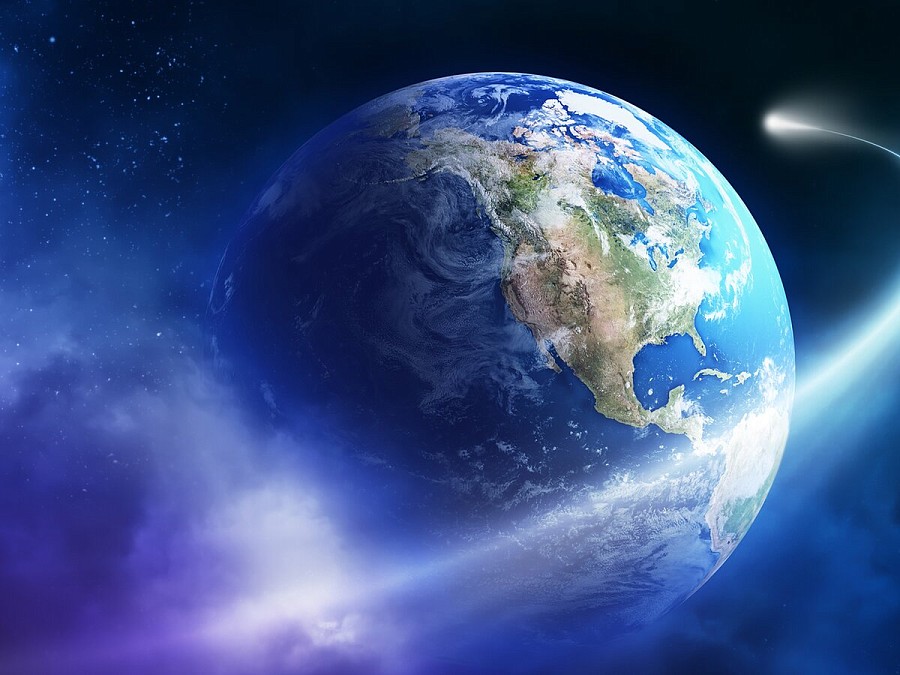May 23, 2022
Planetary intelligence. Scientists believe that the Earth may be an intelligent being!

A planet that has intelligence and comes into contact with its guests and inhabitants often becomes part of the plot of science fiction books and films. Remember, for example, Stanislav Lem's "Solaris", the planet Penelope from Kir Bulychev's book "The Girl from Earth" or James Cameron's "Avatar". The action of these works takes place far away in space. But scientists suggest that our planet can also be considered a living superorganism with signs of an intelligent being.
James Hutton was the first to formulate such an assumption back in 1785. According to his theory, the Earth is a living superorganism and has systems of metabolism and respiration, which externally manifest themselves in the form of geological processes, for example, erosion.
In the XIX century, academician V. I. Vernadsky created the doctrine of the biosphere and proposed to consider all living organisms as a single and interconnected whole. According to his teachings, every living being takes part in the cyclical exchange of the elements of the planet.
In the 70s of the last century, climatologist James Lovelock and biologist Lynn Margulis developed the Gaia hypothesis, named after the ancient Greek goddess of the earth. According to her, the Earth is "a dynamic physiological system that includes the biosphere and supports our planet for more than three billion years in harmony with life." The theory had its own followers, but in general it did not have a global impact on science.
Modern scientists from the University of Rochester went even further, and in their study "Intelligence as a process on a planetary scale" suggested that this organism has a mind. For billions of years, the biosphere has developed a way to maintain the "metabolism" on the planet, which is based on perfect mechanisms for the movement of carbon and nitrogen. According to this theory, human civilization is an "immature technosphere" that cannot yet exist in harmony with the planet. People create new technologies, use fossil resources, but they do not know how to do it environmentally, becoming part of a single system, and not breaking it.
Scientists have divided the history of the Earth 's development into 4 stages:
1. Immature biosphere. This stage began many billions of years ago, when life had just appeared on the planet, and could not yet have any influence on the processes taking place on it.
2. Mature biosphere. This stage started around 2.5 billion. years ago, when continents formed on Earth, the atmosphere and the ozone layer appeared. At this stage, the number of living beings on the planet has increased so that they have already taken part in maintaining the atmosphere, climate and the cycle of elements.
3. Immature technosphere. This period began with the appearance of humanity and continues to this day. People actively influence the state of the Earth, but they cannot control this process and, instead of maintaining the planetary metabolism in order, pollute and deplete the planet.
4. Mature technosphere. This is the next stage of development in which humanity will find ways to coexist harmoniously with nature, which will allow both of them to flourish.
The answer to the question: “How to come to this harmony?”unfortunately, scientists have not found it yet. Therefore, in their opinion, it is now important to find out what planetary intelligence is and what its significance for the world is.
Stay up to date with the latest news from the world of nature together with the Notivory Foundation team!
Read more
July 31, 2024
April 12, 2024
April 5, 2024